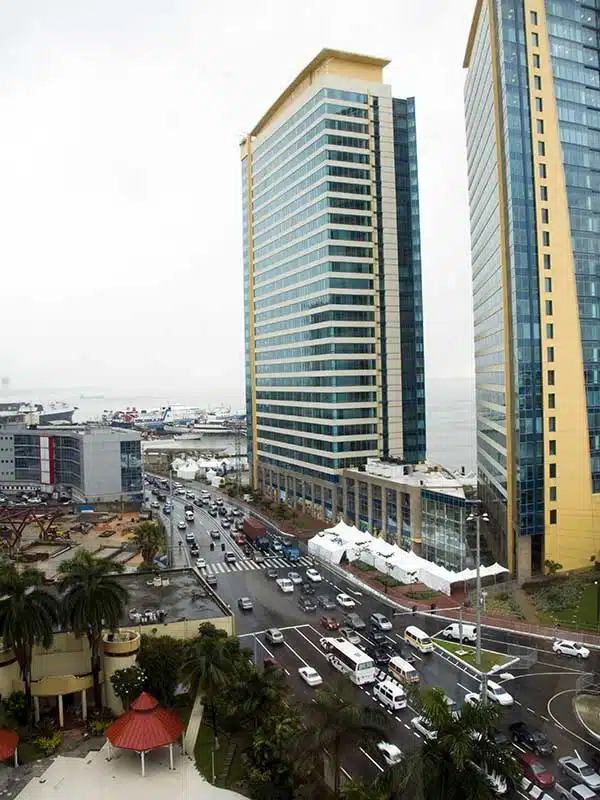Hamel-Smith > Legal Insights > Doing Business in TT > Incentives to Invest
The Government’s economic policy is directed to the development of a robust and open market-driven economy. It is committed to actively encouraging foreign investment in Trinidad & Tobago. Apart from enacting legislation to remove restrictions on foreign investment and to remove foreign exchange control, the Government has also made a wide range of fiscal incentives available to the foreign investor. They generally take the form of import duty concessions or other tax allowances.
In this Chapter, investors are provided with an overview of the type of incentives which are available to encourage investment.
Oil and Gas resources have been the mainstay of the country’s economy for a long time. Recognizing that such resources are finite, in recent years the Government has sought to create an investment climate that attracts higher value investments, especially in the downstream energy and non-energy sectors. As a result, certain incentives and concessions apply to specific industry sectors while others apply across the board.
Under the Corporation Tax Act, tax credits are available to special classes of companies as set out in the following paragraphs:
An Approved Property Development company is entitled to a deduction of fifteen percent (15%) of the capital cost of any building constructed by it and proved to the satisfaction of the Board of Inland Revenue to have commenced:
That is to be used for commercial or industrial purposes by it, a purchaser or a lessee. Where the period of construction extends over more than one (1) year of income, the deduction shall be allowed in the year of income in which the building is completed. Where part only of the building is to be used for commercial or industrial purposes the deduction may, according to the extent of its non-commercial or industrial use, be pro-rated.
With a view to encouraging the development of the hotel industry in Trinidad and Tobago and to stimulate tourism development generally, the Tourism Development Act provides incentives to both Hotel Owners and Hotel Operators.
A summary of the major incentives are:

The details of the incentives must be gleaned from a study of the legislation. It should be noted that there are specific investment criteria to qualify for incentives under the legislation. Some areas of tourism are specifically reserved for nationals. Some of the areas of investment are:
| TYPE OF TOURISM PROJECT | MINIMUM CAPITAL INVESTMENT |
|---|---|
| Accommodation Facility | 18,600,000 |
| Marina, Boatyard | 18,600,000 |
| Recreational Services | 1,550,000 |
| Convention Centres, Shopping Facilities | 6,200,000 |
| Historical Landmarks, Heritage Sites | 6,200,000 |
| Theme Parks/Cultural Centres | 31,000,000 |
| Golf Courses | 31,000,000 |
Under the Petroleum Taxes Act governing Petroleum Profits Tax, several incentives are available, including:
These allowances are claimed on the entity’s tax returns:
Further incentives are available in relation to Supplemental Petroleum Tax (‘SPT’):
These allowances are claimed on the entity’s tax returns.
Companies are allowed deductions in determining chargeable income for expenditure in relation to the following activities:
Under the Income Tax (In Aid of Industry Act), the annual allowance of twenty percent (20%) is to be calculated on a straight line basis on the residue of expenditure after deduction of the initial allowance. Under this Act, the following concessions are available to all manufacturing trades:
These allowances are claimed on the entity’s tax returns.
Full exemption from Customs Duties is available to an applicant who holds a license from the Minister for imports of Machinery and Raw Materials in the following sectors:
Cabinet approval is required for a full exemption and applications are made to the Permanent Secretary, Ministry of Finance.
In the Manufacturing/Assembly sectors, partial exemption from Customs Duties is available for imports as follows:
Exemption from import surcharges is available on raw materials, intermediate goods, packaging materials and other inputs which are not locally manufactured. These are granted by Customs at the port of entry on production of adequate documentation. Stamp Duty on imports has been eliminated.
Exporters targeting countries other than CARICOM countries can benefit from the following incentives:
The Free Zones Act 1988 (as amended in 1995) established the Trinidad and Tobago Free Zones Company to promote export development and foreign investment projects in a bureaucracy-free, duty-free and tax-free environment for prescribed activities. Free zone enterprises may be established in any part of the country. They are one hundred percent (100%) exempt from:
Other benefits include:
Investment opportunities include:
Applications to operate in a Free Zone are made by way of specified forms submitted to the Trinidad and Tobago Free Zone Company. After receiving a recommendation by such entity, the Minister may by Order designate an area a Free Zone, the limits of which are defined in the Order.
Under the Fiscal Incentives Act benefits are granted to large scale manufacturers falling within one (1) of five (5) classifications under the Act.
To qualify the company must meet the following criteria:
Of several proposals made in the 2015 Budget, among others, the following were implemented:
Things To Know
Global & International